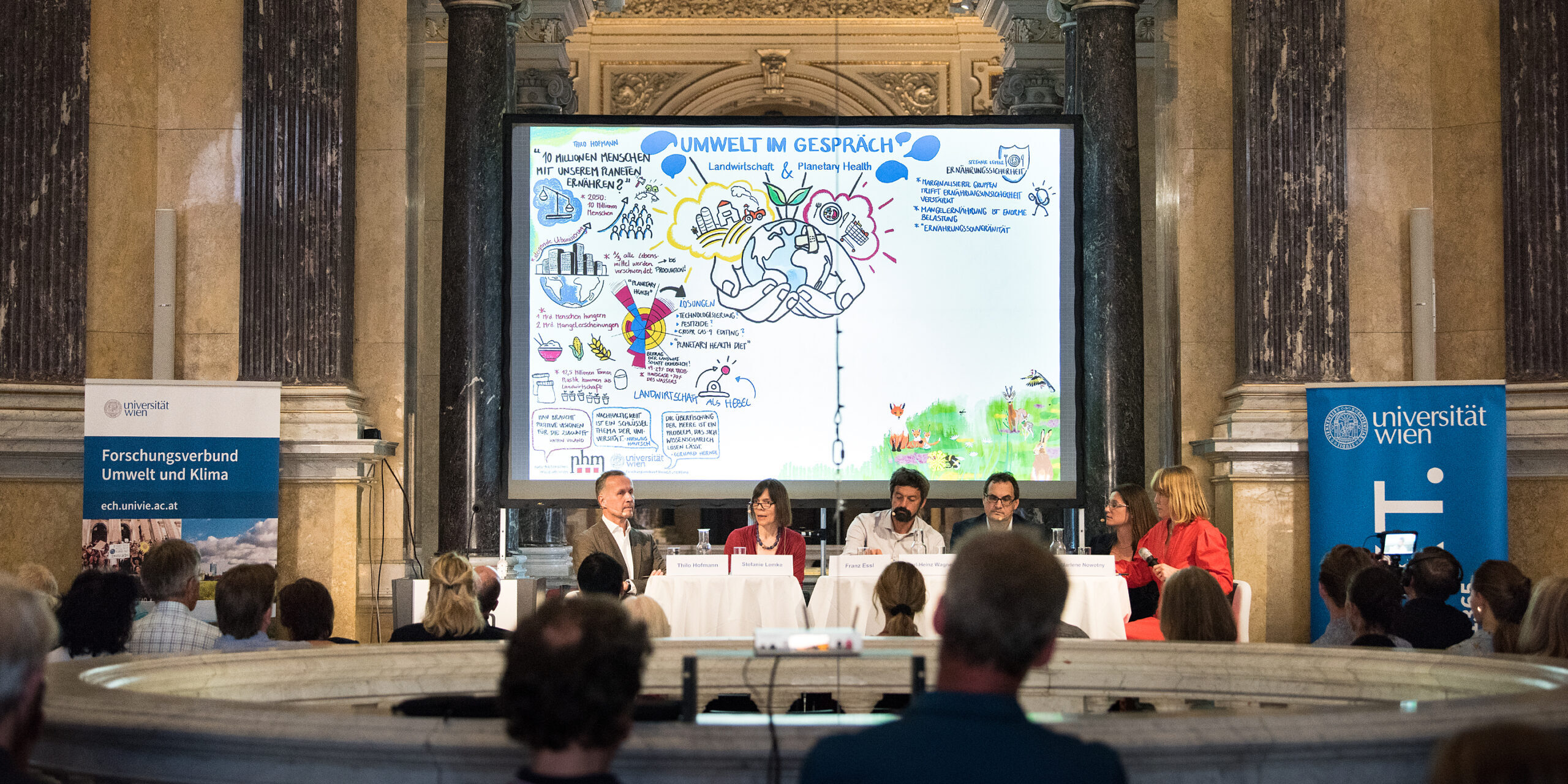Numerous public and academic debates focus on the subject of a healthy and sustainable diet. The way we eat is not only relevant to us as human beings, but also closely linked to the health of the planet through agriculture. The ninth edition of the series of events entitled “Umwelt im Gespräch” (Environmental Dialogue) was therefore shaped by this multifaceted topic, relating to the current semester question of the University of Vienna: Agriculture and planetary health – Opportunities for a healthy and sustainable diet.
The opening was held by Katrin Vohland, Director General of the Natural History Museum, Nikolaus Hautsch, Vice-Rector for Infrastructure at the University of Vienna, and Gerhard Herndl, Professor of Marine Biology at the University of Vienna.
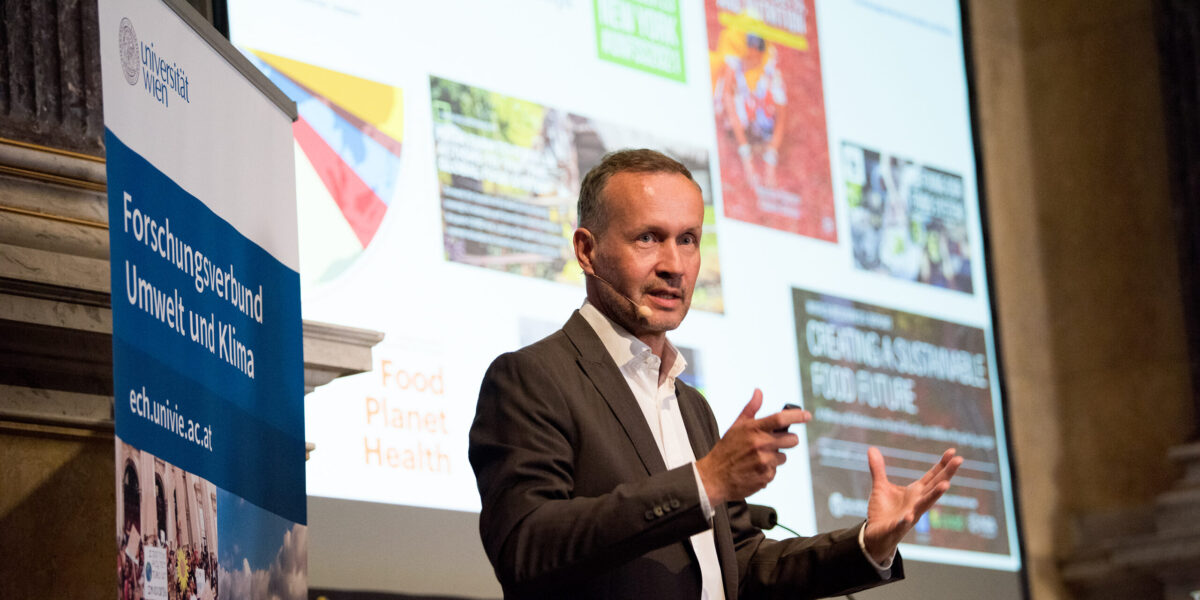
The opening was held by Katrin Vohland, Director General of the Natural History Museum, Nikolaus Hautsch, Vice-Rector for Infrastructure at the University of Vienna, and Gerhard Herndl, Professor of Marine Biology at the University of Vienna.
In his keynote speech, Thilo Hofmann, Co-Director of the Hub and environmental geoscientist at the University of Vienna, provided an overview of the evening’s overarching topic. He asked how we can feed 10 billion people in the future without jeopardising planetary health. Despite technological advances, food insecurity and malnutrition have been on the rise again since 2015, due to climatic changes and social conflicts, among other things. While efficient agriculture is essential for food production, it also causes various forms of environmental damage, for example through deforestation, greenhouse gas emissions, and the acceleration of biodiversity loss. In this context, Thilo Hofmann drew attention to the planetary boundaries that are at risk of being overshot due to our increasing food demand and high resource consumption. The critical problem in the relationship between food, agriculture, and planetary health is that we can no longer feed a growing population in a healthy way and, at the same time, achieve a balance of planetary resources while the environment continues to deteriorate. Possible solutions to this urgent problem could be: changing our eating habits, directly growing food for human consumption, making farming systems more resilient through a wider range of crops, or avoiding food waste in production and among consumers.
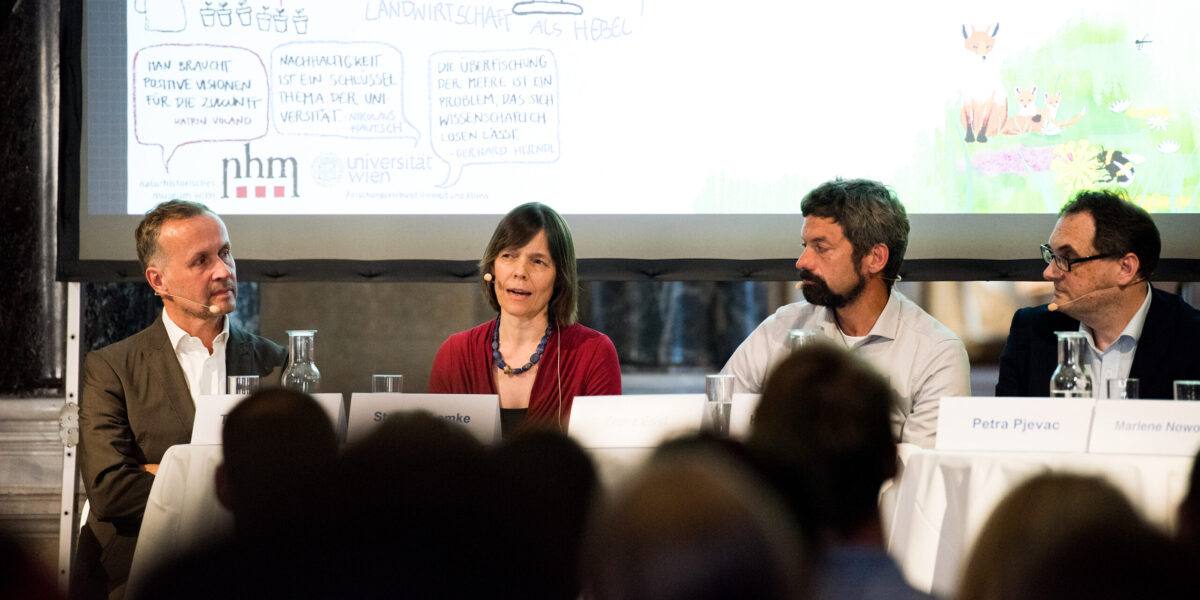
The “Umwelt im Gespräch” event series brings together diverse perspectives on a current, global problem. This event focused on the discussion of how nutrition, agriculture, and planetary health are linked and how central they are to the future of the planet. The event on 30 May was also the first one under the auspices of the newly founded Environment and Climate Research Hub at the University of Vienna, which, as the successor to the Environmental Sciences Research Network, is continuing its interdisciplinary research and networking to a greater extent.The opening was held by Katrin Vohland, Director General of the Natural History Museum, Nikolaus Hautsch, Vice-Rector for Infrastructure at the University of Vienna, and Gerhard Herndl, Professor of Marine Biology at the University of Vienna.
In his keynote speech, Thilo Hofmann, Co-Director of the Hub and environmental geoscientist at the University of Vienna, provided an overview of the evening’s overarching topic. He asked how we can feed 10 billion people in the future without jeopardising planetary health. Despite technological advances, food insecurity and malnutrition have been on the rise again since 2015, due to climatic changes and social conflicts, among other things. While efficient agriculture is essential for food production, it also causes various forms of environmental damage, for example through deforestation, greenhouse gas emissions, and the acceleration of biodiversity loss. In this context, Thilo Hofmann drew attention to the planetary boundaries that are at risk of being overshot due to our increasing food demand and high resource consumption. The critical problem in the relationship between food, agriculture, and planetary health is that we can no longer feed a growing population in a healthy way and, at the same time, achieve a balance of planetary resources while the environment continues to deteriorate. Possible solutions to this urgent problem could be: changing our eating habits, directly growing food for human consumption, making farming systems more resilient through a wider range of crops, or avoiding food waste in production and among consumers.
Stefanie Lemke, social scientist and nutritionist from BOKU University, reflected on the social aspects of food security. These include the privilege of having access to healthy food and sufficient agricultural resources. Socially disadvantaged or indigenous groups often lack basic rights. Their improved participation in the global food system is an imperative.
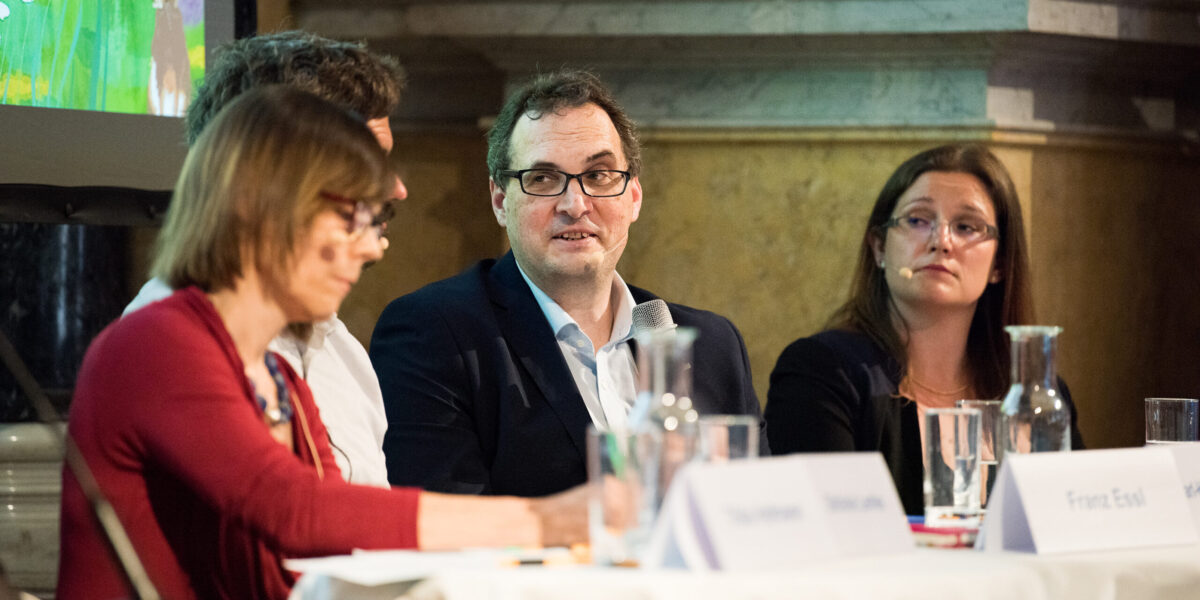
A healthy diet is also highly dependent on an individual’s consumer behaviour, explained the nutritionist Karl-Heinz Wagner from the University of Vienna. For him, education is decisive for a healthy diet, whereby avoiding food waste in particular requires a “common sense” in consumption as well as education to improve shopping behaviour.
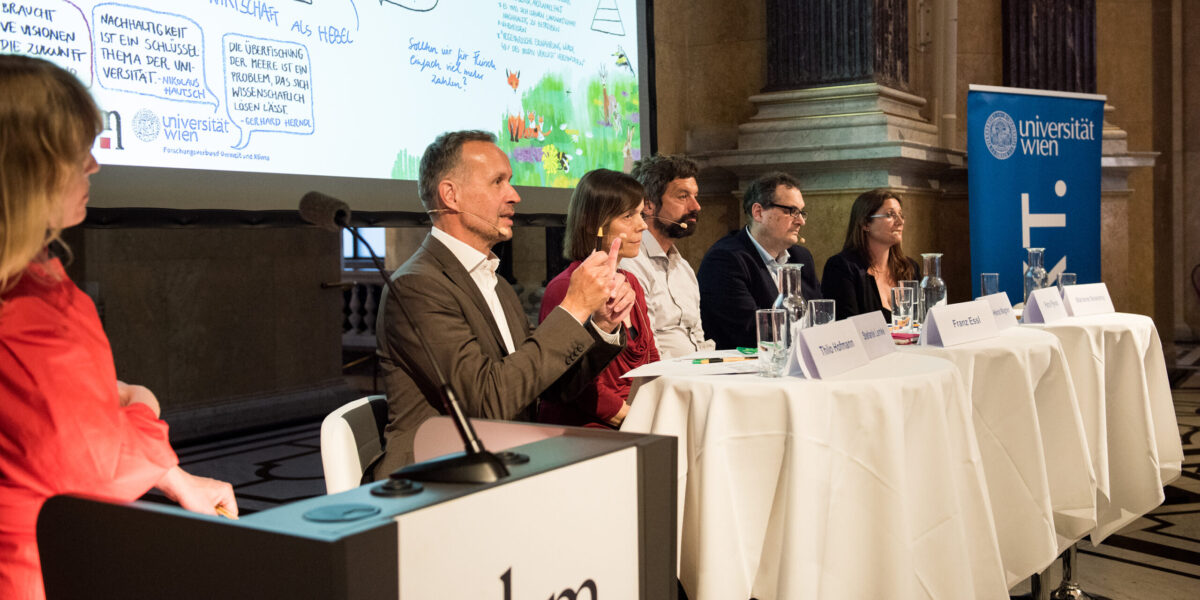
Thilo Hofmann confirmed that we need to change our overall lifestyle and that all public institutions should provide healthy and sustainable nutrition. With regard to the question of fair food systems, he emphasized the role of supermarkets and argued for making the “real” costs of food in terms of health and sustainability clearly visible.
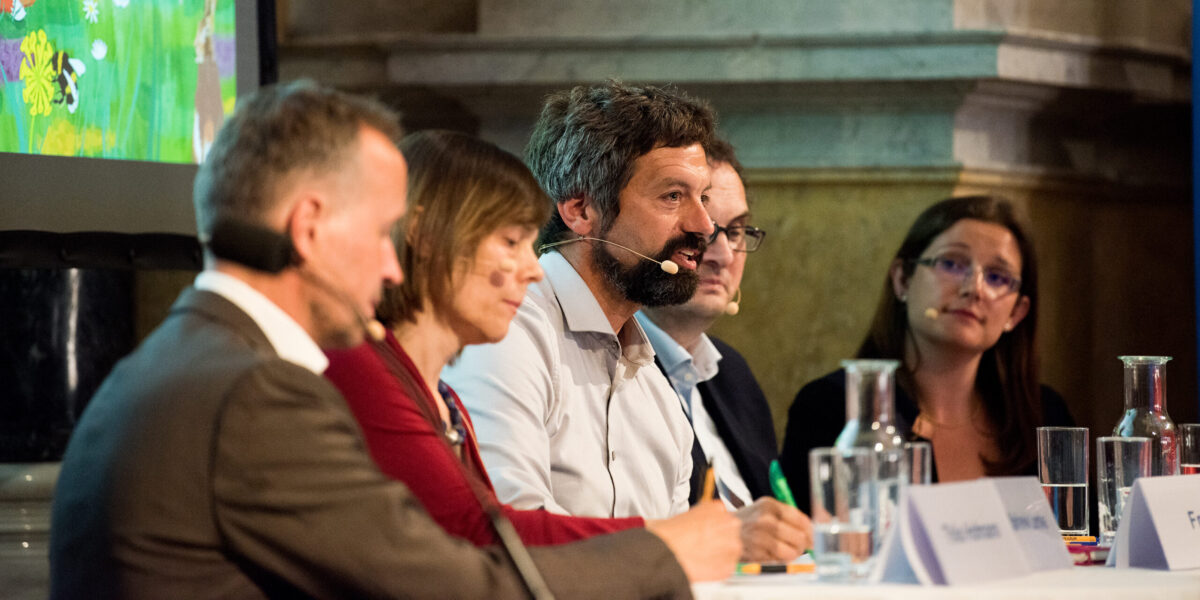
The biodiversity researcher Franz Essl from the University of Vienna emphasized the role of agriculture. The ecologist wants to shift the focus of agriculture from being merely a production site to being the key to ensuring intact biodiversity and as an essential component in climate policy. One of his main research areas, the progressive loss of biodiversity, is a major factor in food insecurity but is also greatly accelerated by human diets and agriculture.
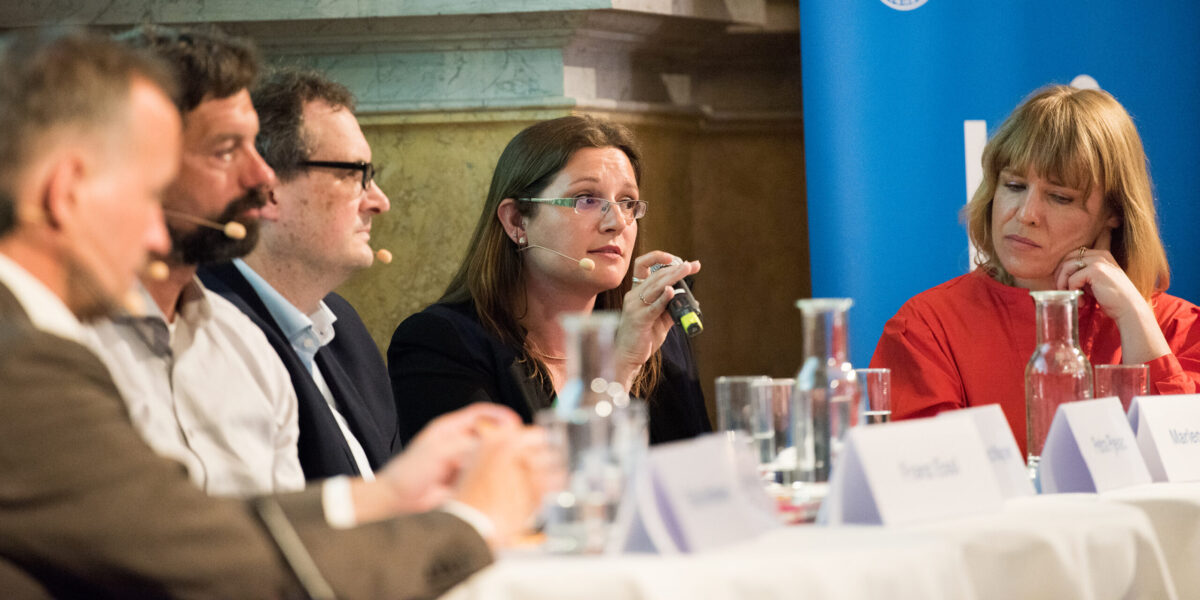
Agriculture can also work differently, as microbiologist Petra Pjevac from the University of Vienna demonstrated through her research. Her scientific studies on alternative nitrogen conversion inhibitors can contribute to making agriculture both more climate-friendly and more efficient. Pjevac explained the importance of her research in ensuring that both food security and biodiversity can be achieved.
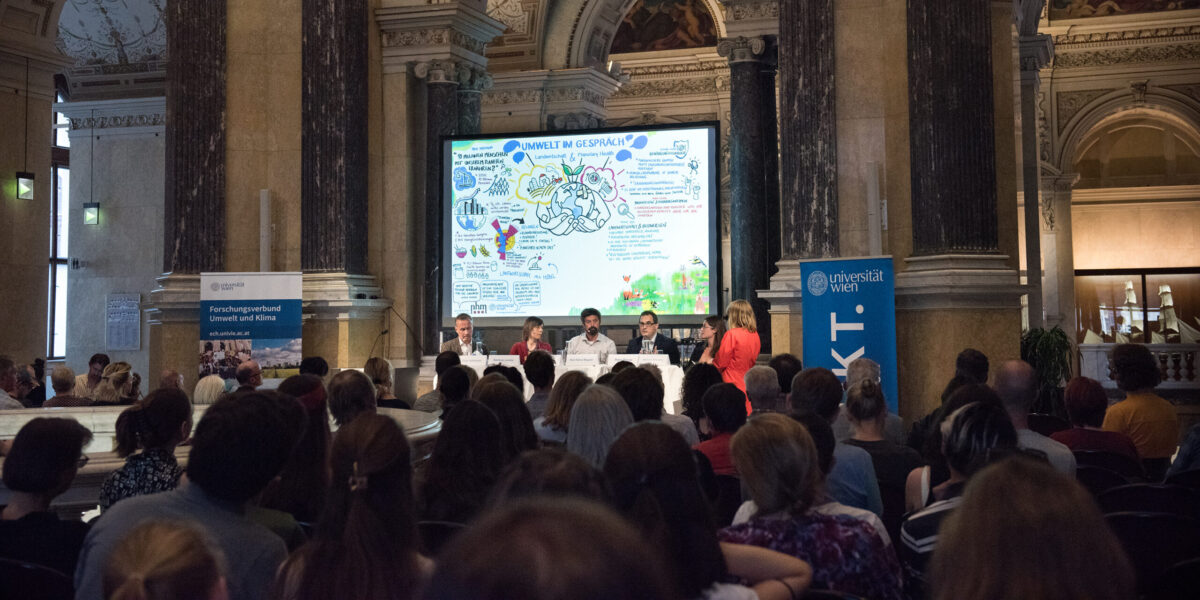
Moderated by Marlene Nowotny (Ö1), the discussion became increasingly engaging, with Kathrin Gusenbauer creating a graphic recording of the event. Throughout the evening, the panelists and the audience discussed, among other topics, the areas of society where we need to start in order to achieve healthy and sustainable nutrition. Additionally, the audience was informed about the responsibility of companies for the health of both people and the planet, as well as the role of academia in the necessary transformation of the food system. The Environment and Climate Research Hub is pleased with the successful and inspiring event and continues to network environmental research both within and outside the University of Vienna through “Umwelt im Gespräch” and other formats.
